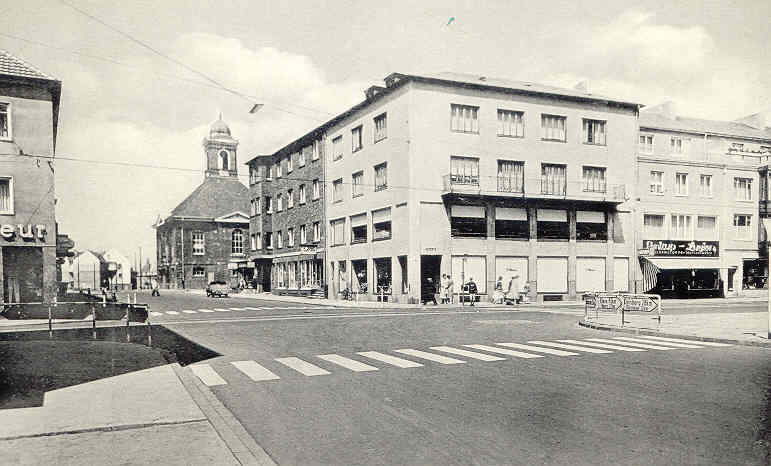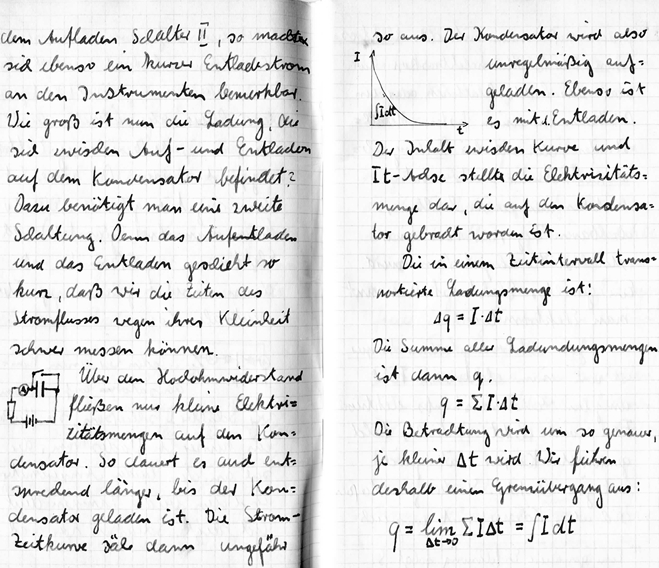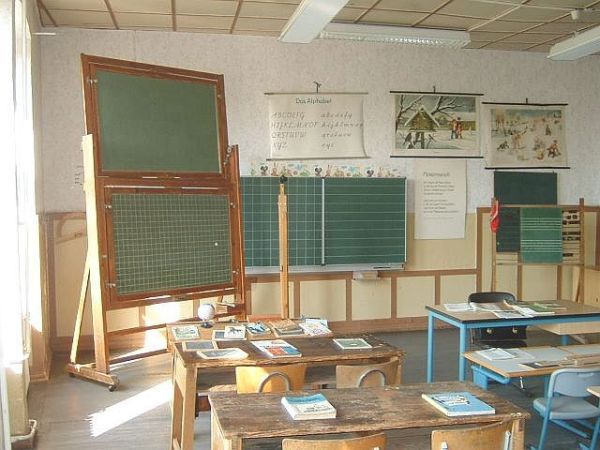Learning to Dance
In the year before graduation social convention for students attending high school required that they attended a school for formal ballroom dancing. The purpose was that under the tutelage of a competent instructor we would not only learn the various types of dances both classical and modern, but also to teach us good manners and etiquette. The list of dances offered in the program was quite extensive including the slow waltz, the Viennese waltz, the foxtrot, the rumba, the cha-cha-cha, and the tango. Our dance instructor, a lady not disdaining modern trends, did not exclude the twist and rock ‘n’ roll from her impressive repertoire.

Graduation Class of Ballroom Dancing at Wesel – Peter in the Upper Row on the Left
Clumsy as I was in those days I looked at first at dancing as a dreadful extension of the P.E. program at school. At least in the gym class I could show off my expertise in yoga and compensate a little for my shortcomings. But to dance gracefully and skillfully with young ladies was an entirely different story. I was thrown into unfamiliar waters. I had to swim or sink. Dropping out was out of the question. Aunt Mieze had paid the non-refundable fee. Besides I was not a quitter. Thus I got together with a classmate, who struggled with similar problems in physical dexterity. Helmut B. was a lawyer’s son. He reflected in his appearance and demeanor the stereotypical image of an intellectual. He wore old-fashioned wide-rimmed glasses. His hands were always moist and sweaty, which made him quite unattractive, when German greeting formality required the mandatory handshake. I still cringe when I see in my mind the ludicrous scene of the two of us practice dancing steps and sequences in my tiny bedroom – one, two, cha-cha-cha; one, two, cha-cha-cha. When Helmut had gone home, I tenaciously carried on with the practice, until I felt I could do the required movements in my sleep. The reward of my efforts came at the weekly dance class in the Wesel Community Hall, which was located not far from the main railroad station. A word or two of praise from the dance mistress worked wonders for my low self-esteem and made my peers look up in genuine surprise at my newly found dexterity. Perhaps not noticeable to others I still mechanically went through the motions, but I discovered the joy of dancing to the tune and rhythm of the music that a portable record player provided. It was through this challenge of learning how to dance that I discovered the principle of success underlying virtually all human endeavors. The ingredients are ninety percent hard work and dedication, the rest being taken up by inspiration, talent and intelligence. The success in overcoming a major hurdle gave me confidence that with the same determination I could work on other weaknesses, such as my mediocre school performance. All of a sudden my life had become goal-oriented.

Berlin Gate at Wesel 2012 – Phot Credit: wikipedia.org
As the final day for the grand ball was approaching, we needed a dance partner with whom we could present our dancing skills to parents, relatives and friends. They were going to be invited to the formal graduation festivities. During the course of our practice sessions I had ample opportunity to dance with most of the girls. Even though my skills to move about on the dance floor through my exercises at home had tremendously improved, I still felt shy about the sociable aspects of being so close in touch with the opposite sex. I mechanically followed the rules laid out by our instructor, like walking up to the girl of my choice and saying, ‘May I have the honor and request this dance with you?’ Etiquette required that the girl could not turn me down. So everything on the surface appeared safe. Yet, I felt awkward and could not see within this formal setting the stage for enjoyable personal social interaction. Although I had no problem competing with the guys in the race for a dancing partner, I often turned to the plain-looking and unpretentious girls, whose simple looks and natural composure were more appealing to me. On the suggestion of our dance mistress we often changed partners, which made sure that even the so-called wallflowers would not be neglected. There was one pearl among them. Gerda M. was her name. She was a bit short for her age, but was quite pretty in my eyes. While I was dancing with her, she made me feel at ease with her contagious cheerfulness and her forgiving acceptance of my occasional faux pas in a complicated step sequence. One day after the lessons she offered to share her umbrella on the way home, as it was raining cats and dogs. I accepted the invitation, as we were both heading in the same direction. We strolled down Railway Street and like in a game of hopscotch jumped over the puddles that had quickly formed on the sidewalk. In spite of or rather because of the rain and the occasional gust that threatened to tear the umbrella out of my hand it was a delightful walk. After I had said good-bye at the intersection where our ways parted, I realized too late that she had wanted me to ask her to become my dance partner at the final ball. The following week Wilhelm von N. accomplished to my great disappointment what I had failed to do. Losing Gerda as my partner was the price I had to pay for my procrastination. Now I had to hurry, for we were told that if we had not made any arrangements on our own, the dance instructor would make the decision for us. The threat of winding up with a randomly selected partner prompted me to ask Margret X., a tall girl about my size, with whom I had danced a few times before. Having had similar concerns and being quite comfortable with me for the dancing test, she readily agreed, and the matter was settled for the final ball as well. Poor Helmut, who did not have the courage to ask out of fear of rejection, approached me during the break and entreated me to make the arrangements with Fräulein Z. for him. Somewhat reluctantly I walked up to the girl that Helmut had indicated to me and passed on his invitation to become his partner, which she joyfully accepted. She did wonder aloud though, why on earth he would use me to ask her, which I discretely left unanswered.

Downtown Wesel in the early 1960’s
The final ball proceeded with much pomp rivaling in decorum and detail a high school graduation ceremony. The event was definitely a crowd-pleaser for participants and invited guests alike. When it was our turn to show off our newly acquired skills in a mock test (nobody actually failed), Margret and I did the slow waltz as our first number and then the rock ‘n’ roll dance to the beat of contemporary rock music. We had not left out any of the prescribed dance sequences, such as the spin, change of hands behind the back, two hands wrap and turn, and many variations to the rotations of my partner and myself, but best of all the pretzel, which because of its difficulty I have never used since. What I liked about this dance was the freedom to choose any combination of the learned sequences so that each dance felt like your own creation. To show their appreciation for our creativity, the audience rewarded us with a longer than usual applause.
Thus an important formative segment of my life came to a satisfying conclusion. Many of the dance skills acquired during that period eventually faded with the passage of time. Like with so many other skills the truth of the saying remains, “Use it, or lose it.” But the memory being rekindled through my writing here will stay. This coming-of-age phase, when I was about to turn twenty, was going to play a significant role in my metamorphosis from adolescence into adulthood in the years that followed.


















